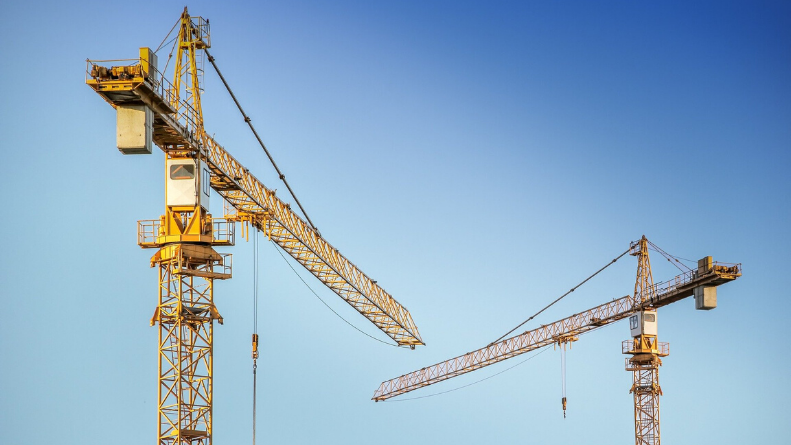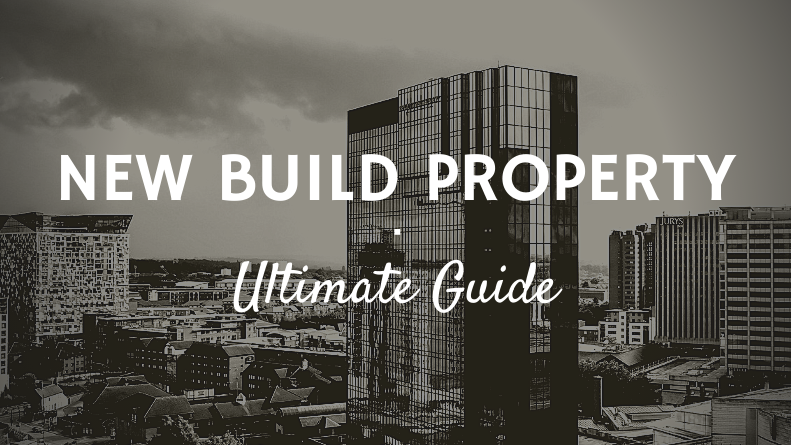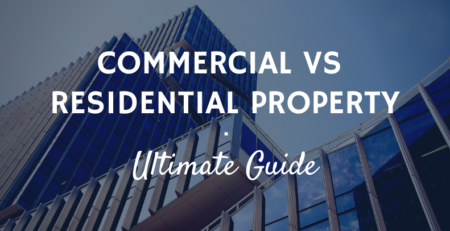New Build Property | Ultimate Guide
Continuing our series into property investment guides, we look at new build property and assess whether this type of property is worth investing in. The appeal of moving into a house that no one has previously lived in is attractive to most. New build property has long been known to represent longevity with modern fittings and the novelty of having no previous owners, thus no previous history and associated problems. But do new build properties represent good value for prospective homebuyers and property investors? At what stage should you purchase, what is the cost when compared to an existing property and is it possible to make a return for investors? Here at FJP Investment we decided to delve into this topic and answer these common questions posed by our clients and wider readers.
New build property
With roughly 165,000 new build properties constructed in 2019 and a growing number of people needing suitable housing, new build properties are likely to increase in construction over the next few years. New build properties are attractive due to the fact that maintenance will be low for a significant period after purchase. With the fixtures and fittings all being brand new, coupled with a guarantee with most new builds to cover you for any faults, buyers generally have peace of mind about the quality of the property. Having no previous owners also means that there are no hidden damages or previous work that has not been logged, saving money on an extensive survey and costs to repair work.
A shortage of funding
With 8.4 million people now living in unaffordable or unsuitable housing, you would think that increasing the production of new build properties would solve many problems, easing pressures on the growing housing crisis facing the UK. However, several hurdles are faced when it comes to building more housing, a significant reason being the lack of funding available for developers. There were encouraging signs before the COVID-19 pandemic hit the UK that the housing sector would receive some additional funding. With a plan to build one million new properties over the next five years, the direction and statement of the current Government was encouraging. This was backed by the National Infrastructure Strategy (NIS), laying out various areas the Government were planning to boost funds in the construction sector. This would have been a massive help towards meeting this housebuilding goal. However, whether this will proceed given recent circumstances is to be seen. The other issue plaguing the new build market, highly relevant to those buying is the lack of appeal the properties themselves have.
Negative sentiments towards new builds
Here at FJP Investment, we commissioned a survey asking over 1,000 UK homebuyers to reveal their thoughts about new build properties, and the results were surprising. A massive 63 percent of those asked stated that new build properties were unattractive and devoid of character. Location was another key issue, with 57 percent stating that new build properties were in inconvenient locations when it came to transport, with an additional 48 percent expressly concerned about the lack of infrastructure in the development area. To solve a housing crisis, you need to think intuitively to create affordable housing to those that need it. With two thirds stating that new build property was out of their budget, the current portfolio is not meeting this vital need. For clarity, a new build is £60,000 more expensive than the average house price in the UK. With poor workmanship and an overall poor standard of finish also evident in new builds, something clearly must change. So, what are the positives here?
The potential for success is evident
As mentioned earlier, the Government were aware of the problems in the market and were set on tackling them before the COVID-19 pandemic. We must remain optimistic that the Government will still follow through on their previous statements. The UK public and those viewing property are very aware of new build property also. In fact, a massive 75 percent of those asked stated that they had viewed a new build property when searching for property. With demand evident, the Government need to work with developers in creating affordable and attractive new build properties. Clearly some intuitive thinking will be required to achieve this successfully, but with a rise in developers addressing these issues and building aesthetically pleasing designs, like Norwich’s award-winning council houses, there does seem to be a shift in meeting the needs of the consumer.
Should I purchase a new build?
This question will be quite subjective depending on whether you plan to live in the property or whether you are viewing it purely as an investment. For those looking to purchase as a home for themselves, if you are willing to overlook some of the previous points, there is no reason why a new build property will not work for you. Those looking to purchase as an investment should be thinking the same. Whatever your preference, the process of purchasing is very much the same as when buying a standard home – the fundamentals of successful property purchasing apply. For the purpose of greater clarity, we will cover the process of purchasing and tips from an investment point of view. The below is very much applicable to those purchasing for themselves, also.
The purchasing process
Make sure you have got your funds in order. Securing a mortgage for a new build can be more difficult with stricter limits on the maximum value of the property and thus how much the lender will loan. Make sure you will be able to purchase the property before proceeding too much into the buying process. If you are purchasing the property outright or securing a mortgage, you will need to compare purchase price, yields and capital gains against other properties from an investment point of view to see if this is the best option for you.
“You need to find the right property that suits you or your prospective tenants needs.”
Assuming you are opting for a new build, the property should have good transport links and amenities in the area and, ideally, be in an area with high house price growth. Purchasing property allows you to realise capital growth, whereby the value of the property goes up with time. If the city (or surrounding town/village) has a high level of house price growth, you are essentially making money on the increase in the value of your home. If location is not an issue, areas in the North, cities such as Manchester and Liverpool are recording some of the highest rates of growth. Towns located near cities that are currently seeing high growth is a great way to beat the increase, even areas close to London are a safe bet. Do your research and see what the increase is in your area of interest and see if the area is expecting any future investment, chances are you will capitalise on this. Once you have found a location, make sure to research the developer, ensuring that they deliver high quality new build properties. Seek out impartial reviews of others that have purchased with the developer also. Visit the development properties themselves and be critical, do ask any questions that are necessary. If you remain interested in the purchase, it is time to make your offer. Before making the offer though, you should still use a surveyor to do a basic survey on the property to ensure no faults of major defects will arise over the coming years. New build properties are less likely to have faults, but they are not immune either. You can negotiate on the price of a new build property, using an agent may help you to secure the best price. Either way, make sure you have negotiated before opting to make the purchase. Bear in mind if this is an additional property to the one you currently own, you will owe Stamp Duty Land Tax (SDLT) on the purchase as well as any other fees and deposits, make sure to plan for this.
 A new build buy-to-let?
A new build buy-to-let?
So, having purchased a new build property, as an investor, you will want to work out how to get the greatest return on this. Do new build properties make good buy-to-let opportunities?
Yields are disappointing
If you are going into new builds with the primary view of letting it out, the truth is that new build properties generally have reasonably low yields. Success can be had however, there are some essential calculations you must do before committing to this strategy. Most buyers will be purchasing with a mortgage. If this is the case, the monthly income you can realistically charge must be higher than your monthly mortgage payments to be a successful investment. The cost of repairs and maintenance is likely to be lower in a new build, but don’t assume that this will be non-existent. You should have some money put aside for repairs and maintenance as well as management fees where applicable. Be realistic, this needs to work in the long-term to be a success.
Tougher regulations
This being an impact on all buy-to-let properties, regardless of age, buy-to-let is less profitable now than it was a decade ago. The Government made several changes to the sector through fears first time buyers were being priced out of the market. As of 2016, anyone buying a second home needs to pay a 3 percent SDLT surcharge if it is a second property. Mortgage interest tax relief was also phased out, with other tax changes making the sector less profitable. Many may be considering letting the property out as a house of multiple occupancy (HMO) to increase the number of income streams from the property. Even though the property is of a modern standard, this doesn’t change the fact that legislative requirements are more focused on the minimum size of each room and shared facilities. A new build property is less likely to be successful as an HMO, it will likely require too much additional work. You can have success in letting the property out, the returns just need to be favourable. The property will require less maintenance and is likely to further increase in value if you have chosen a desirable area. Many will choose to avoid new builds for buy-to-let however with greater yields realised in older properties purchased at a reduced cost.
An alternative approach: going off-plan
An opportunity to secure a new build property at a discounted rate is to purchase off-plan. Off-plan refers to the purchase of property before it has finished being constructed. Off-plan has grown considerably in recent years, largely due to the 2008 financial crisis. With lenders becoming more risk adverse, property developers are identifying alternative ways to secure funding on development projects – the most common way is to offer the property off-plan to buyers at a discounted rate. Buyers are securing property at 15 percent off the asset value of the property. The property benefits from capital growth from the moment the funds have been transferred so you do not lose out here either. Naturally, there is greater risk involved. In situations such as the recent COVID-19 pandemic, construction of property came to a hold. Whilst there are complications surrounding the delay itself, should the developer default on the construction of property, you are at risk of losing the entirety of the investment you have put into the prospective property. In any case, it is essential that you are insured before buying off-plan.
To conclude
The current crop of new build properties being constructed are underwhelming. Buyers are put off by the characterless builds and surprisingly poor finish in most cases, with most properties simply representing poor value. Benefits are evident in new build properties however – lower running costs and maintenance, newer appliances when furnished and the novelty of being the first owner of the home. There is potential for success in a new build property, and if your heart is set on a new build, there are certainly worse investments you can make. We are likely to see an improvement in future developments for new build properties. If you can wait, this is probably advised in the current new build environment whilst waiting to benefit from better quality new builds at, hopefully, more affordable prices.
ARE YOU READY TO START INVESTING?
Subscribe to our mailing list now for exclusive deals, investment guides and
the latest information from the property market.
ARE YOU READY TO START INVESTING?
Subscribe to our mailing list now for exclusive deals, investment guides and the latest information from the property market.







